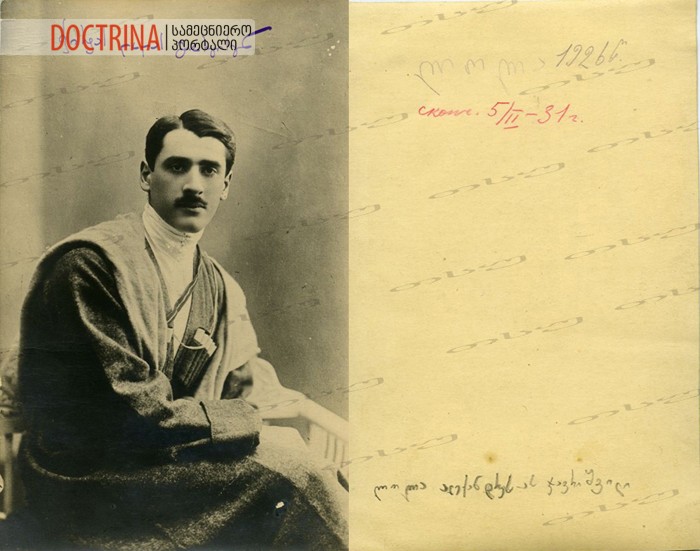Many people may know Georgian mathematician, metallurgist and sportsman – Giorgi Nikoladze. However, not everyone knows about his world-wide invention.
Giorgi Nikoladze, who was born in the family of Niko Nikoladze, a well-known Georgian public figure, was born in Didi Jikhaishi and died at the age of 42.
After graduating from the Kutaisi Gymnasium in 1861, Nikoladze continued his studies at the Faculty of Law of St. Petersburg University and actively participated in demonstrations in 1861, for which he was arrested and expelled from the university.
He initiated the idea of creating the first gymnastics community in Tbilisi in 1918, and he established the term “gymnastics” in the Georgian reality. In the same year, Nikoladze started working for the Ministry of Trade and Industry, but soon left his job and became the head of the Faculty of Natural Sciences at Tbilisi State University.
Nikoladze was fluent in English, French and German along with Russian, which made it even more easier for him to travel freely abroad and cooperate with foreign editions.
In 1926-1928, Nikoladze went abroad for two years to defend his thesis and inspected the first electric calculators exhibited in Paris. The self-taught mathematician came up with the idea of creating an electric calculator that could perform addition, subtraction, multiplication and division operations.
Despite many offers, Giorgi decided to return to his homeland and to realize his invention here. But the only thing that we know about that period is that his first model was exhibited at Moscow University until 1936, although his fate is unknown.
It is interesting to mention that Nikoladze had a penchant for geometry and mathematics since childhood, but he has not passed any special training program in this field, which surprises us even more. He was fascinated by poetry and wrote numerous works. In addition, he gave us an in-depth analysis of the artistic work of Ilia Chavchavadze and Grigol Orbeliani.
Nikoladze died of bilateral croupous pneumonia. Unfortunately, the exact date of his death is in question, according to some reports, he died in 1928. “Great people must not be neglected,” said Niko Lortkipanidze, and it is unfortunate that so little attention is paid to the distinguished figures of different eras, whose names are forgotten.
Translation: Tamar Tabatadze
The Hall of Young Scientists & Analysts – “Doctrina”







